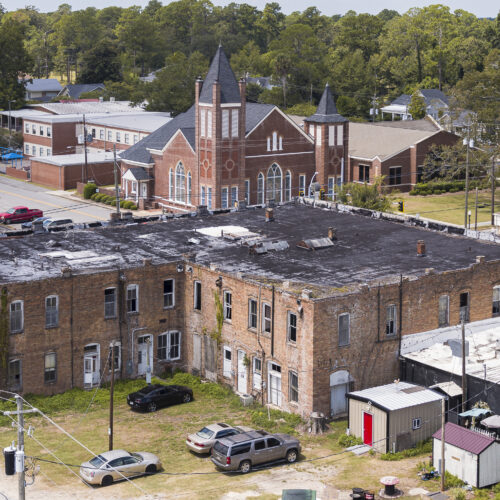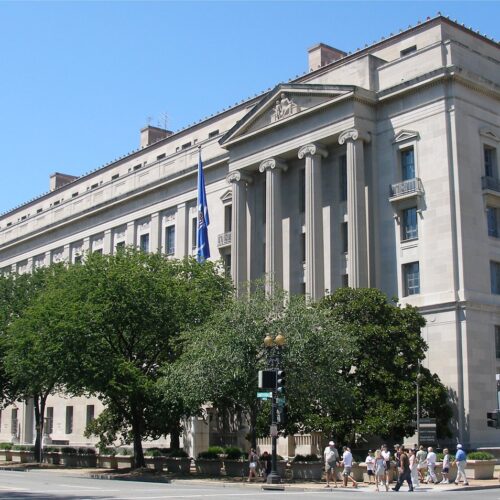Georgia
The state of Georgia administers indigent defense services for adult criminal trials in all locales, except where local governments choose to administer their own services. State and local governments share funding obligations, including state funding with localities paying some overhead costs. A state commission provides oversight of indigent defense statewide.
The state of Georgia administers indigent defense services for adult criminal cases in its appellate courts unless a local government chooses to administer services for its own cases. State and local governments share funding obligations, including state funding with localities paying some overhead costs. A state commission oversees services statewide.
-
153 Counties Primarily State Funded
-
6 Counties Primarily Locally Funded
-
153 Counties Primarily State Administered
-
6 Counties Locally Administered
-
159 Counties with a Commission With Statewide Authority
-
159 Counties Primarily State Funded
-
159 Counties Primarily State Administered
-
159 Counties with a Commission With Statewide Authority
The state of Georgia administers indigent defense services through circuit public defender offices. A chief defender leads each office and is responsible for delivering adult and juvenile services across their circuit. The state also provides statewide conflict representation and capital trial and appeal representation through specialized offices. Certain single-county judicial circuits are not administered by the state, and instead locally administer their own services, subject to state standards. For local ordinance violations, counties and municipalities are responsible for providing indigent defense services, either by contracting with the state or through their own system, subject to state standards.
The Georgia Public Defender Council (GPDC) oversees indigent defense. A governor-appointed executive director leads GPDC and is responsible for appointing and reviewing the performance of the chief public defenders for each circuit. The governor appoints most of the nine members, which make up the council responsible for annually reviewing locally administered circuits. A legislative committee, composed of eight legislators appointed by diverse authorities, oversees the council. The state funds circuit public defenders’ salaries while counties must pay for offices and supplies. Circuits that administer their own services must fund their services, though they still receive some state funds.
The state of Georgia administers almost all indigent defense services in adult appeals. The Georgia Public Defender Council (GPDC) has a capital defender division, which represents all indigent defendants statewide in their capital trial and appeal through staff attorneys and some private attorney contracts. The GPDC also has an appellate division, which represents indigent defendants in appeals across the state. The state-established circuit public defender offices can also handle appeals. Where a single-county judicial circuit has chosen to administer its own services, the local system may handle appeals, subject to state standards.
The GPDC oversees all indigent defense statewide. A governor-appointed executive director leads GPDC and is responsible for appointing and reviewing the performance of the chief public defenders for each circuit. The governor appoints the majority of a nine-member council, which is responsible for annually reviewing locally administered circuits. A legislative committee, composed of eight legislators appointed by diverse authorities, oversees the council. The state funds its capital defender and appellate divisions as well as circuit public defenders’ salaries while counties must pay for offices and supplies. Circuits that administer their own services must fund their services, though they still receive some state funds.
Dig Deeper
Can counties opt-out of the state system?
How is a circuit public defender selected?
Is there any pay parity between indigent defense providers and prosecutors in the state?
In which branch of state government does the indigent defense system reside?
Support Our Work
Criminal justice issues that disproportionately harm poor people, such as wrongful convictions and over-incarceration, cannot be fixed if indigent defendants are given attorneys who do not have the time, resources, or qualifications, to be a constitutional check on government. Yet, investment in improving indigent defense services remains largely neglected. The Sixth Amendment Center is the only nonprofit organization in the country that exclusively examines, uncovers, and helps fix the root of the indigent defense crisis in which inequality is perpetuated because poor defendants do not get a fair fight.
The Sixth Amendment Center is a tax-exempt 501(c)(3) nonprofit organization under EIN: 45-3477185.
Donations are tax-deductible to the fullest extent allowable under the law.







